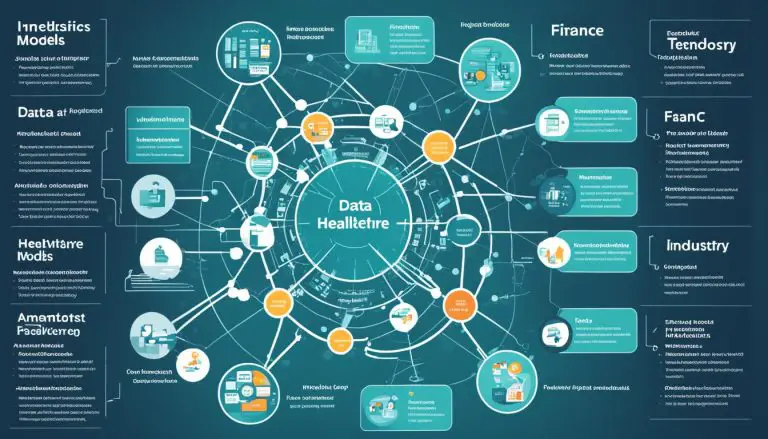Understanding ‘What is a Scripting Language’: A Simple Guide
Welcome to my simple guide on understanding what a scripting language is. In this article, we will explore the definition, features, uses, and types of scripting languages. Whether you’re a developer, web designer, or programmer, this guide will provide you with valuable insights to help you navigate the world of scripting languages.
A scripting language is a type of programming language specifically designed for scripting tasks. It involves writing instructions that are executed by a run-time environment. Unlike traditional programming languages, scripting languages do not require compilation before execution. Instead, they can be executed directly, making them highly versatile and efficient for automating tasks and enhancing the functionality of websites.
Scripting languages are widely used in various applications, from web development to system administration and games. They offer several benefits, including ease of learning, cross-platform compatibility, and lighter memory requirements compared to traditional programming languages.
There are two main types of scripting languages: server-side and client-side. Server-side scripting languages, such as PHP, Python, and Ruby, run on web servers and are used to create dynamic websites and handle user queries. On the other hand, client-side scripting languages like JavaScript, HTML, and CSS run on the user’s web browser and are used for building user interfaces and adding interactive elements to web pages.
Key Takeaways:
- A scripting language is a programming language designed for scripting tasks.
- Scripting languages do not require compilation before execution.
- They are used to automate tasks, add functionality to websites, and integrate with other programming languages.
- Scripting languages can be classified into server-side and client-side scripting languages.
- Server-side scripting languages run on web servers and handle dynamic websites, while client-side scripting languages run on web browsers and handle user interfaces.
What is Scripting?
Scripting is a way of delivering instructions to a computer or group of computers. It involves telling a computer what to do, when to do it, and how to do it. Scripting languages are a type of coding that automate step-by-step functions or processes. Unlike other forms of coding, scripting languages do not require compilation and can be interacted with directly.
Scripting languages are designed to be easy to learn and use, making them accessible to beginners. They are often used to automate repetitive tasks or add functionality to websites. Examples of scripting languages include JavaScript, PHP, and Python.
“Scripting is a powerful tool for automating tasks and enhancing the functionality of websites.”
Types of Scripting Languages
Scripting languages can be broadly categorized into two main types: server-side scripting languages and client-side scripting languages. Each type serves a different purpose and has its own unique features and characteristics.
Server-Side Scripting Languages
Server-side scripting languages, as the name suggests, run on the web server. They are used to process and generate dynamic content for websites. Server-side scripting languages are responsible for handling user requests, accessing databases, and creating dynamic web pages.
Some popular server-side scripting languages include:
- PHP
- Python
- Ruby
Client-Side Scripting Languages
Client-side scripting languages, on the other hand, run on the user’s web browser. They are used to enhance the user interface and provide interactive functionality to web pages. Client-side scripting languages are primarily used for front-end development.
Some commonly used client-side scripting languages include:
- JavaScript
- HTML
- CSS
Both server-side and client-side scripting languages play essential roles in web development, with each type serving a specific purpose in creating dynamic and interactive websites.
| Server-Side Scripting | Client-Side Scripting |
|---|---|
| Executed on the web server. | Executed on the user’s web browser. |
| Used for generating dynamic content and handling user queries. | Used for enhancing user interface and interactivity. |
| Examples: PHP, Python, Ruby. | Examples: JavaScript, HTML, CSS. |
Advantages of Using Scripting Languages
Scripting languages offer several benefits that make them an attractive choice for developers. These advantages contribute to their popularity and widespread usage in various fields of programming. Let’s explore the key advantages of using scripting languages:
Easy to Learn and Use
One of the major advantages of scripting languages is their ease of learning and use. Compared to traditional programming languages, scripting languages have a simpler syntax and require fewer lines of code to accomplish tasks. This makes them accessible to beginners and allows for faster development and prototyping. With their straightforward syntax and concise structure, scripting languages enable developers to quickly grasp the fundamentals and start building applications.
Open Source and Portable
Scripting languages are often open source, meaning that their source code is freely available for modification and distribution. This open nature promotes collaboration and knowledge sharing within the developer community. Additionally, scripting languages are designed to be portable and cross-platform. They can run on different operating systems and browsers without requiring extensive modifications. This flexibility allows developers to create applications that can be easily deployed across multiple platforms, enhancing the reach and accessibility of their software.
Lightweight and Efficient
Compared to traditional programming languages, scripting languages have lighter memory requirements. They consume fewer system resources and are optimized for efficient execution. This efficiency makes scripting languages well-suited for tasks that involve quick processing and minimal overhead. Whether it’s handling user inputs on a website or automating routine tasks, scripting languages provide a lightweight and efficient solution.
In conclusion, scripting languages offer several advantages that make them a popular choice for developers. Their ease of learning, open-source nature, and portability contribute to their wide adoption across various domains. Additionally, the lightweight and efficient nature of scripting languages make them ideal for quick and resource-efficient programming. These advantages make scripting languages a valuable tool in the software development landscape.
Application of Scripting Languages
Scripting languages have a wide range of applications in various industries and domains. They play a crucial role in web development, system administration, and games and multimedia. Let’s explore how scripting languages are utilized in these areas:
Scripting Languages in Web Development
In web development, scripting languages are extensively used to create dynamic and interactive websites. Server-side scripting languages like PHP, Python, and Ruby are commonly employed to handle user queries, process form data, and generate dynamic content. These languages enable developers to build robust and scalable web applications that can deliver personalized experiences to users.
On the other hand, client-side scripting languages such as JavaScript, HTML, and CSS are essential for enhancing user interfaces and adding interactivity to web pages. They enable the creation of dynamic features like dropdown menus, form validation, and real-time data updates. With the increasing demand for responsive web design, the role of scripting languages in web development has become more crucial than ever.
Scripting Languages in System Administration
Scripting languages are widely used in system administration to automate repetitive tasks and manage complex IT systems efficiently. System administrators utilize scripting languages to write scripts that can automate processes like software installations, system configuration, and data backups.
By leveraging scripting languages like Python, Bash, and PowerShell, system administrators can streamline routine maintenance tasks, monitor system performance, and ensure consistent and reliable operations across multiple servers and network devices. The ability to write scripts empowers system administrators to save time, reduce manual errors, and optimize the overall efficiency of IT infrastructure.
Scripting Languages in Games and Multimedia
Scripting languages play a vital role in the development of games and multimedia applications. They are used to define the behavior of characters, control game mechanics, and create interactive elements. Game engines like Unity and Unreal Engine support scripting languages such as C#, JavaScript, and Python, allowing developers to bring their ideas to life.
In multimedia applications, scripting languages are utilized to create dynamic visual effects, handle user interactions, and synchronize media playback. By combining scripting languages with multimedia frameworks like HTML5 and CSS3, developers can create rich and immersive experiences for users, whether it’s in interactive presentations, virtual tours, or multimedia storytelling.
| Application | Scripting Languages |
|---|---|
| Web Development | PHP, Python, Ruby, JavaScript, HTML, CSS |
| System Administration | Python, Bash, PowerShell |
| Games and Multimedia | C#, JavaScript, Python |
As demonstrated, scripting languages have diverse applications that contribute to the development of dynamic websites, efficient system administration, and engaging games and multimedia experiences. Their versatility and ease of use make them indispensable tools for professionals in these fields.
The Best Scripting Languages To Know
When it comes to learning scripting languages, there are several options that stand out. Each language has its own strengths and areas of application, making them valuable skills to acquire in the ever-evolving tech industry. Here are some of the best scripting languages to learn:
1. PHP
PHP is a popular server-side scripting language widely used in web development. It powers millions of websites and offers a robust set of features for creating dynamic web pages. With PHP, you can easily integrate databases, handle form data, and implement complex functionality. It is known for its simplicity, scalability, and extensive community support.
2. Python
Python is a versatile scripting language that has gained immense popularity due to its simplicity and readability. It is widely used in various domains, including web development, data analysis, machine learning, and automation. Python’s extensive libraries and frameworks make it a powerful tool for building scalable and efficient applications.
3. Ruby
Ruby is a flexible and beginner-friendly scripting language known for its elegant syntax. It has a strong focus on developer productivity and is often used in web development and automation. Ruby on Rails, a popular web framework, simplifies the process of building complex web applications by providing a clean and efficient development environment.
4. JavaScript
JavaScript is a client-side scripting language that adds interactivity and dynamic content to websites. It is the backbone of modern web development and is essential for creating responsive user interfaces and interactive web applications. JavaScript frameworks like React, Angular, and Vue.js have further propelled its popularity.
5. Perl
Perl is a powerful scripting language known for its text-processing capabilities. It is often used for tasks like data extraction, system administration, and network programming. Perl’s concise syntax and extensive libraries make it a preferred choice for text manipulation and automation.
By learning these scripting languages, you can expand your programming skills and enhance your career prospects. Whether you are interested in web development, data analysis, automation, or system administration, mastering one or more of these languages will undoubtedly open doors to exciting opportunities.
Scripting Languages Bootcamps
If you’re looking to learn scripting languages and kickstart your career in programming, coding bootcamps can be a great option. These bootcamps offer structured learning programs focused on teaching scripting languages in a short period of time, usually ranging from a few weeks to a few months.
There are two main types of coding bootcamps available: virtual and in-person. Virtual bootcamps provide online learning experiences, allowing you to learn from anywhere at your own pace. In-person bootcamps, on the other hand, offer immersive learning environments with hands-on training and direct interaction with instructors and peers.
Both virtual and in-person bootcamps offer courses in popular scripting languages like JavaScript, Python, and PHP. These languages are widely used in web development and are considered essential skills for many programming jobs. By enrolling in a bootcamp, you can gain the necessary knowledge and practical experience to confidently use scripting languages in real-world projects.

Comparison of Virtual and In-person Bootcamps
| Virtual Bootcamps | In-person Bootcamps |
|---|---|
| Flexible learning schedule | Structured learning environment |
| Accessible from anywhere | Physical presence required |
| Self-paced learning | Immersive learning experience |
| Remote support from instructors | Direct interaction with instructors and peers |
Regardless of the type you choose, scripting languages bootcamps can provide you with the skills and knowledge needed to launch a successful career in programming. Whether you prefer the flexibility of virtual bootcamps or the immersive experience of in-person bootcamps, these programs can equip you with the necessary tools to confidently work with scripting languages in various industries.
Jobs that require scripting language knowledge
Having knowledge of scripting languages opens up a wide range of job opportunities in the tech industry. With the increasing demand for automation, web development, and data analysis, professionals skilled in scripting languages are highly sought after. Here are some of the job roles that require scripting language knowledge:
“Python Programmer: Python is a versatile scripting language widely used for web development, data analysis, and automation. As a Python programmer, you will be responsible for writing efficient and scalable code, creating web applications, and implementing data-driven solutions.”
In addition to Python, a strong understanding of JavaScript is also in high demand:
“JavaScript Programmer: JavaScript is a client-side scripting language used for building interactive websites and web applications. As a JavaScript programmer, you will work closely with web designers and developers to implement dynamic features and enhance user experiences.”
Moreover, software engineering roles often require proficiency in scripting languages:
“Software Engineer: Scripting language knowledge, such as Python or Ruby, is valuable for software engineers. It enables them to write scripts to automate tasks, enhance software functionality, and improve overall efficiency.”
These are just a few examples of the many job roles that require proficiency in scripting languages. Whether you aspire to be a Python programmer, JavaScript programmer, or software engineer, having a strong foundation in scripting languages will open up numerous career opportunities in the tech industry.
Scripting Language Jobs
| Job Role | Required Skills |
|---|---|
| Python Programmer | Proficiency in Python, knowledge of web development and data analysis |
| JavaScript Programmer | Strong understanding of JavaScript, experience with front-end development |
| Software Engineer | Knowledge of scripting languages like Python or Ruby, experience with software development and automation |
Conclusion
In conclusion, scripting languages play a crucial role in the world of programming and development. They provide developers, web designers, and programmers with the power to automate tasks, create dynamic websites, and seamlessly integrate with other programming languages. Learning a scripting language can open up a plethora of career opportunities and enhance problem-solving and logical thinking skills.
Whether you choose to master PHP, Python, JavaScript, Ruby, or Perl, each scripting language offers its unique advantages and potential uses. PHP is widely used in backend web development, while Python is known for its simplicity and concise syntax. Ruby provides flexibility and ease of learning, while JavaScript is essential for web development. Lastly, Perl is commonly used for text manipulation.
By acquiring scripting language skills, you can significantly boost your programming abilities and become an invaluable asset in the digital landscape. So, whether you’re a beginner or an experienced programmer, consider delving into the world of scripting languages and discover the countless possibilities that await.
FAQ
What is a scripting language?
A scripting language is a programming language designed for scripting, which involves writing instructions for a run-time environment. It is used to automate tasks, add functionality to websites, and integrate with other programming languages.
What is the difference between scripting and coding?
Coding refers to the overall process of writing instructions for computers, while scripting specifically refers to the process of delivering those instructions through a scripting language. Scripting languages do not require compilation and can be interacted with directly.
What are the types of scripting languages?
There are two main types of scripting languages: server-side and client-side scripting languages. Server-side languages run on a web server and are used for creating dynamic websites, while client-side languages run on the user’s web browser and are used for building user interfaces and lighter functionality.
What are the advantages of using scripting languages?
Scripting languages are easy to learn and use, open-source and freely available, portable and cross-platform, and have lighter memory requirements compared to traditional programming languages.
What are the applications of scripting languages?
Scripting languages have various applications, including web development, system administration, games, and multimedia. They are commonly used in web development to create dynamic websites, automate system administration tasks, add interactivity to games and multimedia, and more.
What are the best scripting languages to know?
Some of the best scripting languages to learn include PHP, Python, Ruby, JavaScript, and Perl. Each of these languages has its own unique advantages and potential uses.
How can I learn scripting languages?
You can enroll in virtual or in-person coding bootcamps that provide structured learning programs for scripting languages. Many bootcamps offer courses in popular scripting languages like JavaScript, Python, and PHP.
What jobs require scripting language knowledge?
Jobs that require scripting language knowledge include roles like Python programmer, JavaScript programmer, software engineer, front-end web developer, and data analyst. The demand for professionals with scripting language skills is high.
- About the Author
- Latest Posts
Mark is a senior content editor at Text-Center.com and has more than 20 years of experience with linux and windows operating systems. He also writes for Biteno.com






